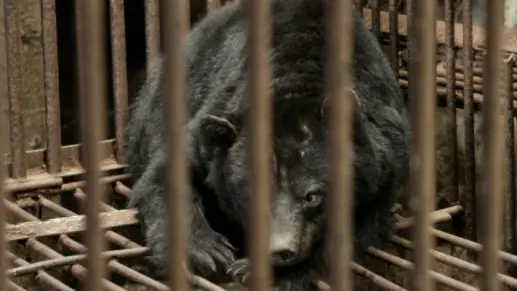02:58
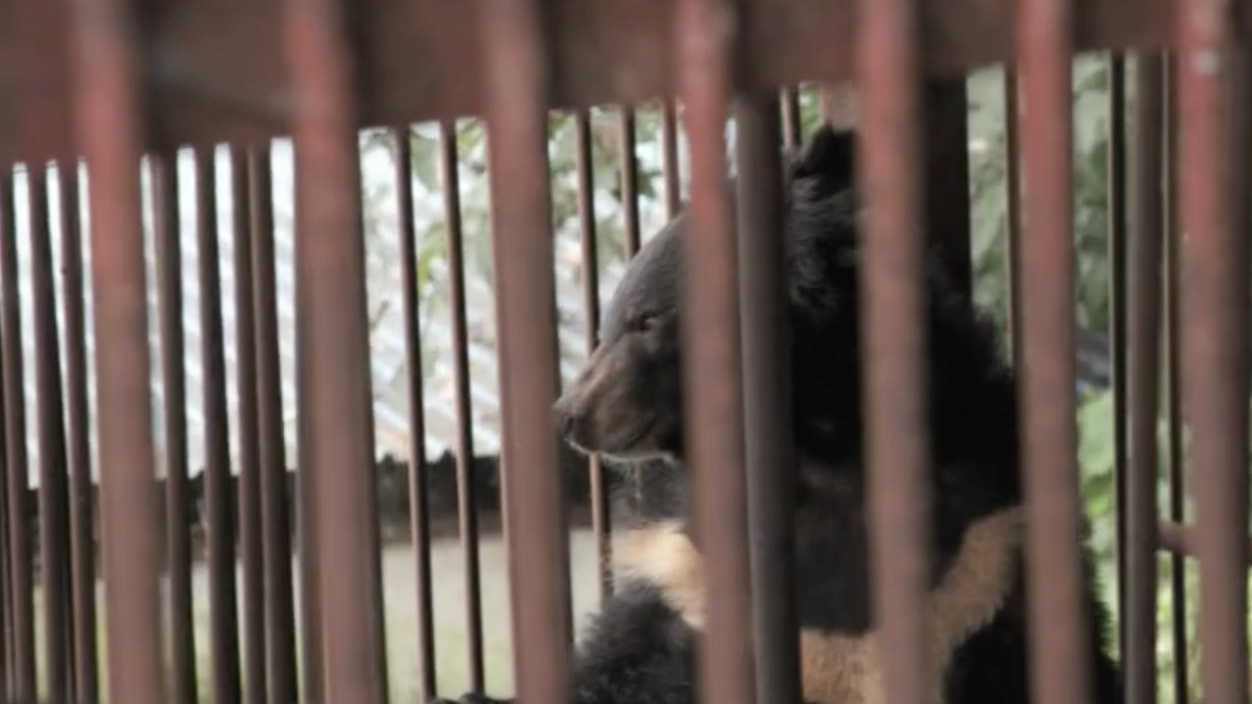
South Korean animal rights activist Kim Soo-jin was warned about what she would face at a farm for Asiatic Black Bears, but she said nothing could prepare her for the reality.
"When I first visited a bear farm for a field survey, I was too shocked. Bears that are supposed to be in the wild are trapped in farms like this. I was shocked because in the end they are destined to get out of the cage only after they die," said Soo-jin, who works for the Korean Animal Welfare Association.
The bears were once raised and killed for their bile, from which Ursodeoxycholic acid (UDCA) was extracted for traditional medicines.
UDCA can now be produced much more cheaply from bovine bile and even yeast.
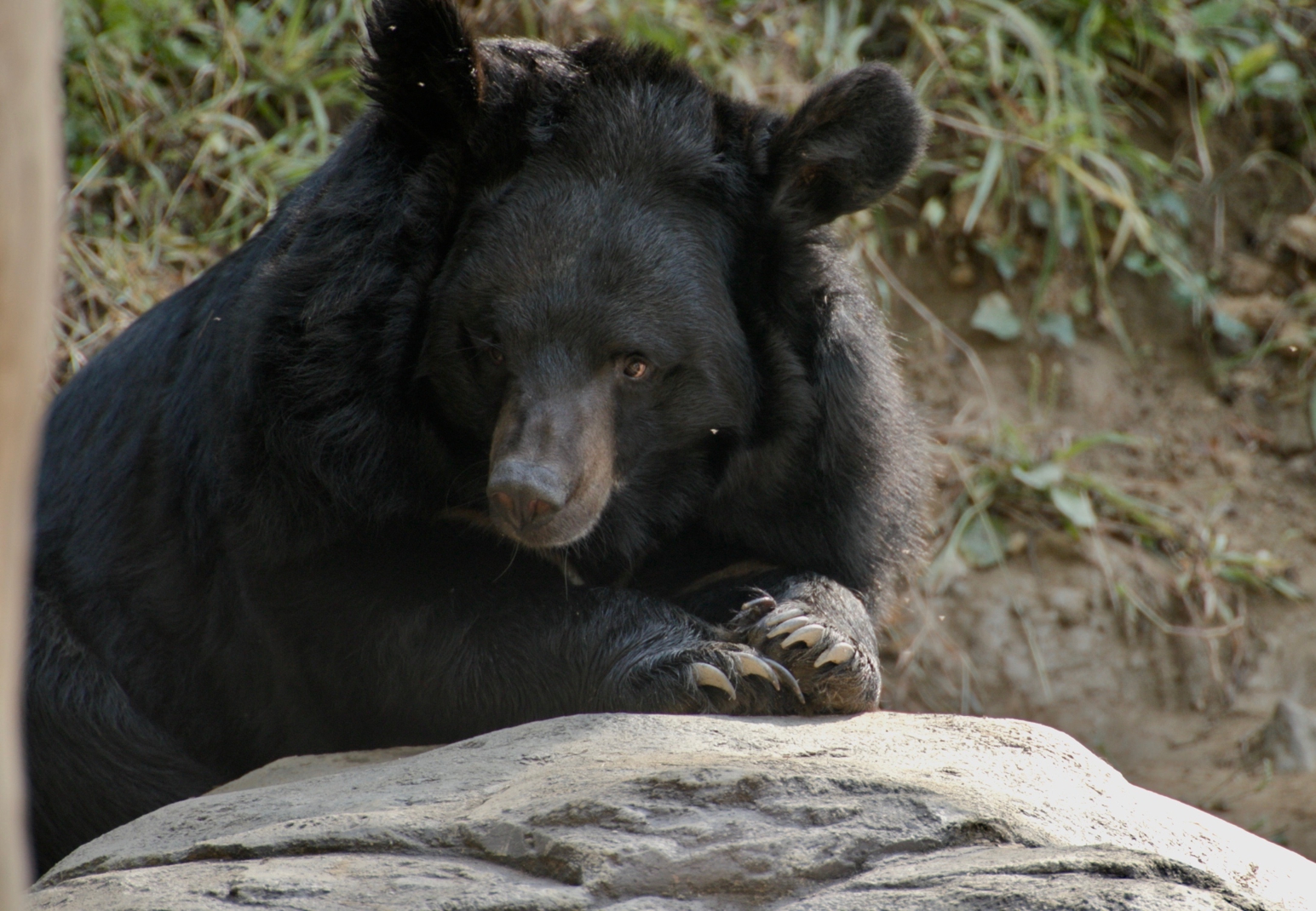
A healthy bear at Jiri Mountain National Park sanctuary, South Korea.
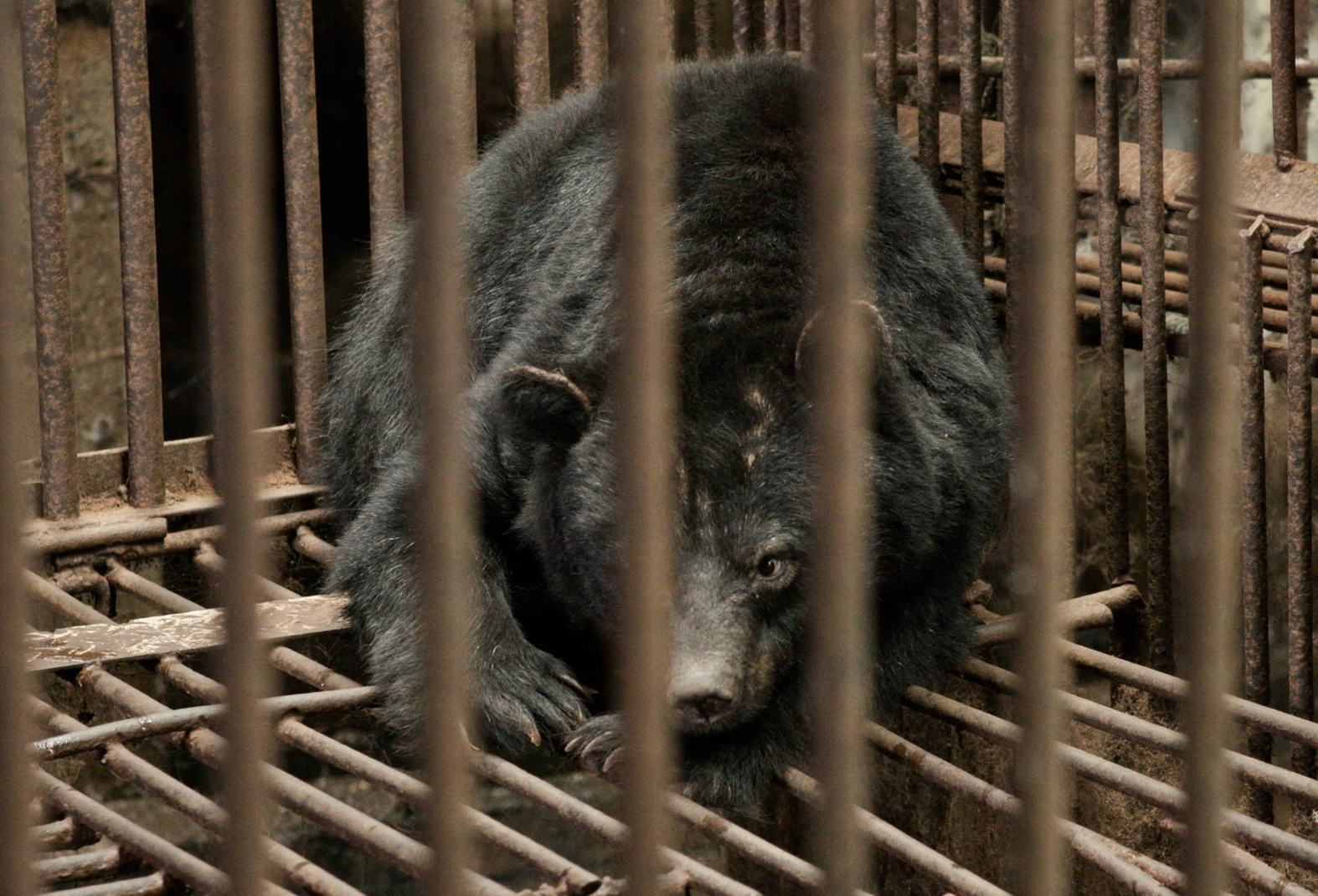
A farm bear in Dangjin, South Korea.
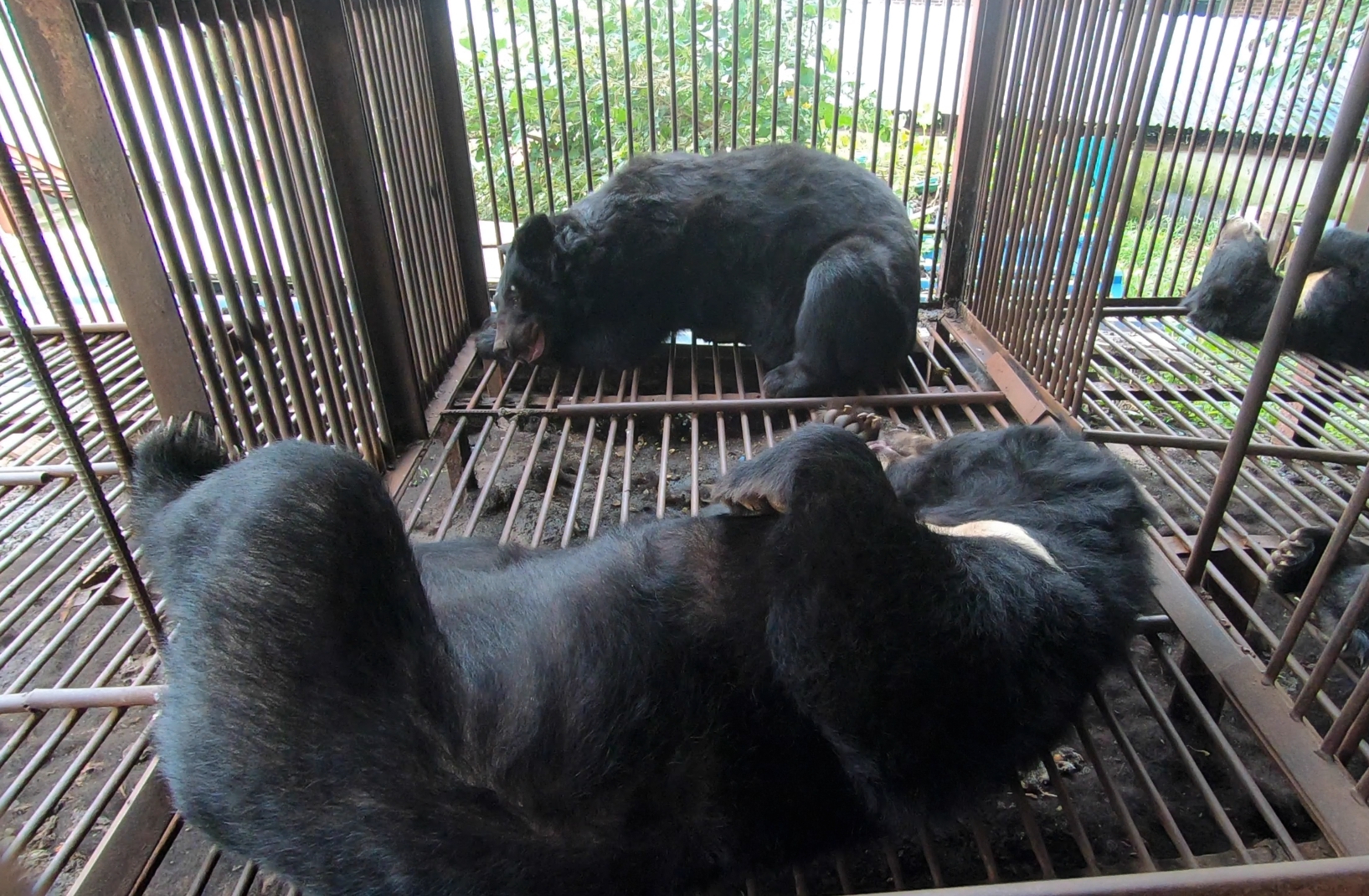
Farm bears in Dangjin, South Korea.
Soo-jin and a colleague took CGTN on a grim tour of one of South Korea's bile farmshousing 136bears still cooped up in rusted cages despite the fact the market for bear bile has collapsed along with any profits that might help feed or properly shelter the injured and deeply traumatized animals.
Excrement was seen everywhere along with a host of flies.Some bears were missing chunks of fur, at least one missing a leg, all were visibly traumatized, pacing or rocking back and forth against the rusted bars that also support paws that had never touched the ground.
A single plastic tub with a few out-of-date donuts donated by a chain was all the food they had.
The owner of the farm, Kim Gwang-soo, said the government encouraged him to start the farm, so the government should help him shut it down.
"It is shameful to continue to drag out such backward projects in the back alleys. So, I hope the government will quickly build an animal shelter, a sanctuary, and buy all the bears in the farmhouse and manage them," he said.
The government has pursued initiatives to rehouse some of the bears.
Local governments have added former bile bear areas at two zoos, but there is not enough room to house all the farmed animals.
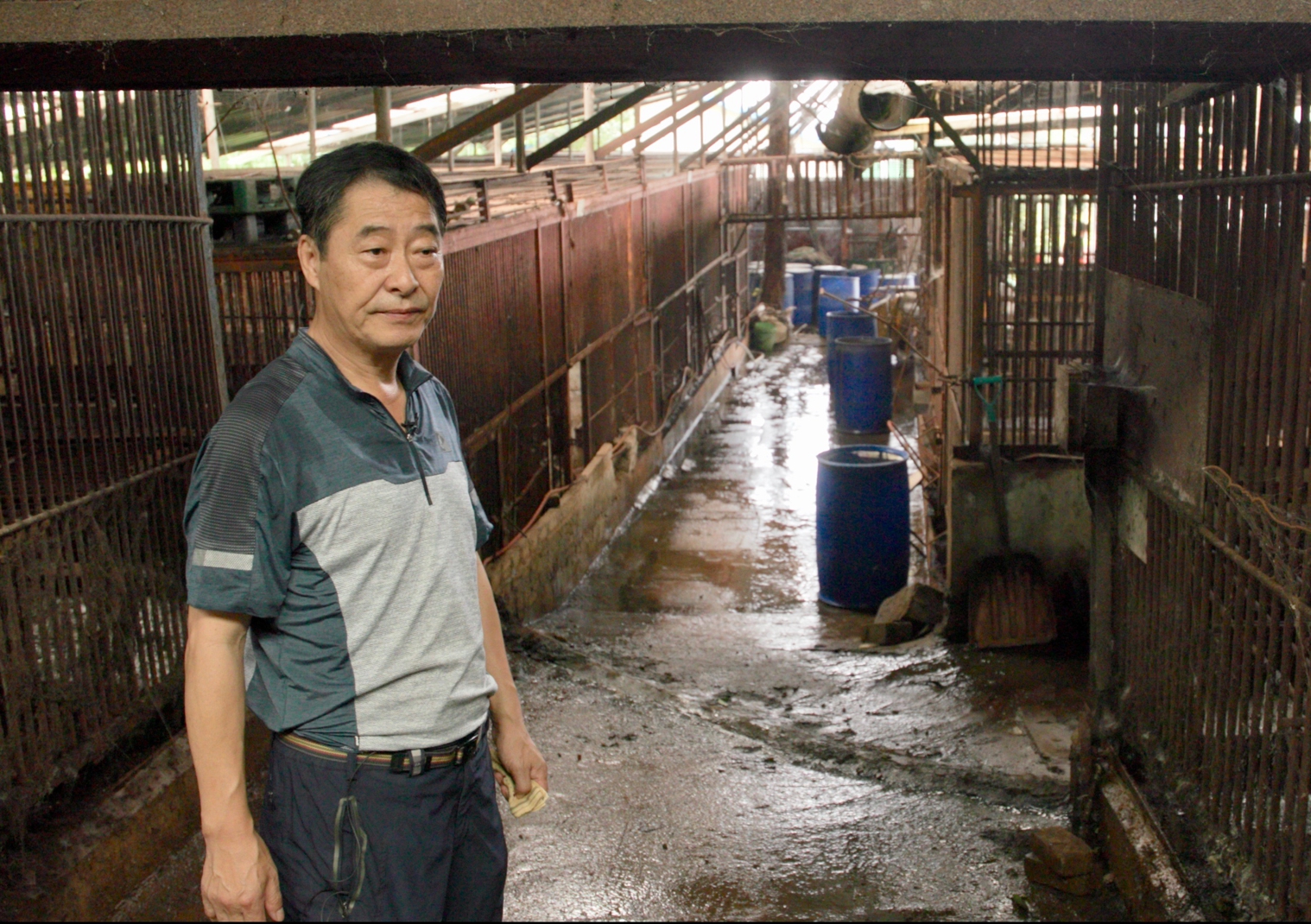
Kim Gwang-soo, owner of bear farm in Dangjin, South Korea.
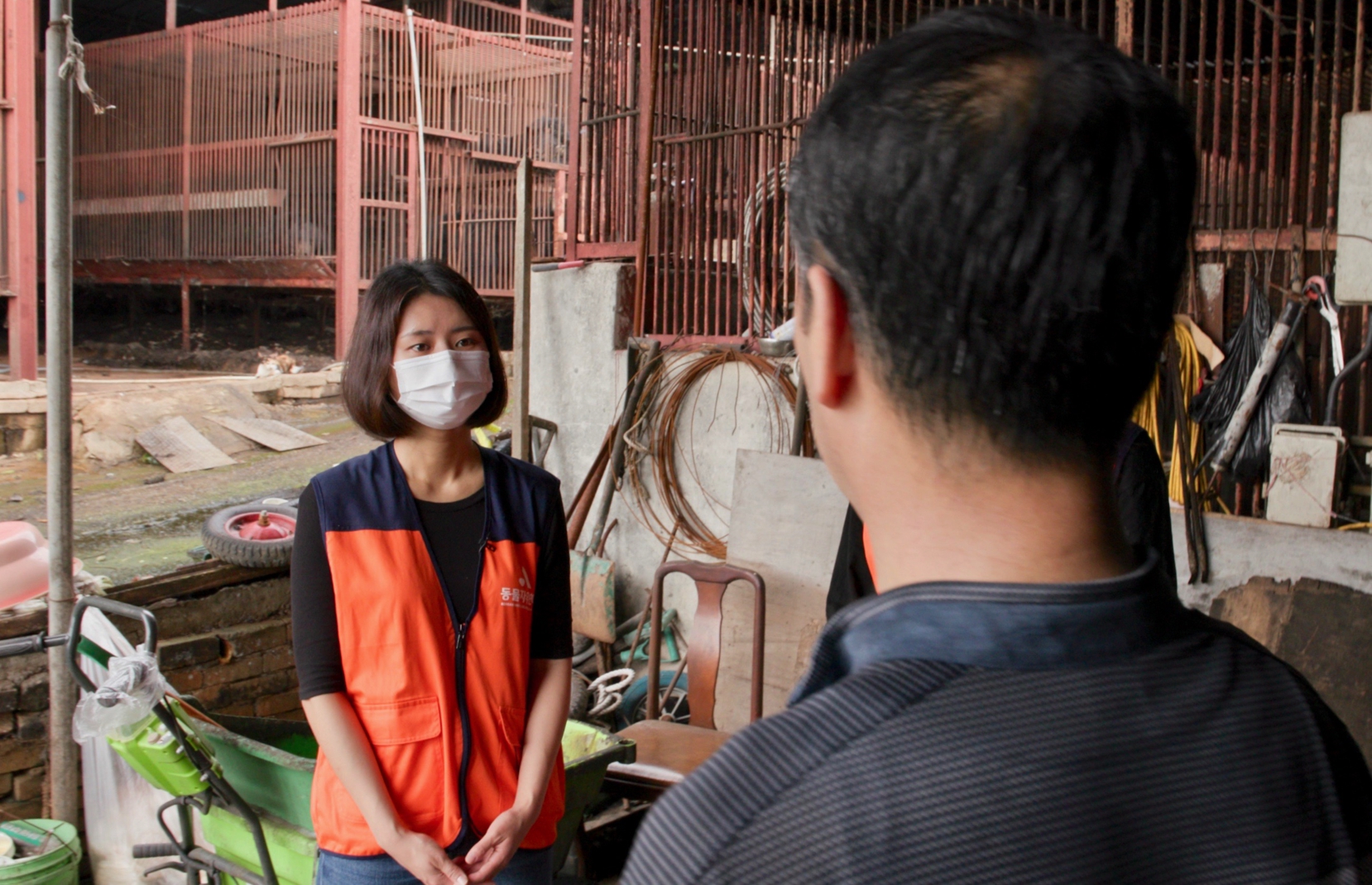
Kim Soo-jin of the Korean Animal Welfare Association speaks with Kim Gwang-soo, bear farm owner, in Dangjin, South Korea.
Asiatic black bears were thought to have died out in the south during the Korean War, though one was spotted decades after the armistice was signed.
The project to re-introduce them has been handled by the Korea National Park Service at Jiri Mountain.
The project relies on imported bears that share the same genetic makeup as the native species.
"We have been getting bears from Russia since 2004, and from the DPRK since 2005. They've been buying those that are genetically the same as the bears we have here in South Korea," said Kim Seon-du, team leader at the national park's bear project, while standing next to a large rock and grass enclosure for bears who could not make it in the wild.
Three were visible.One lost a leg in a trap, the others struggled to forage.Even so, their health and relaxed demeanor appeared the opposite of the scarred, traumatized farm bears.
Kim said he hopes a solution for the farm bears can be found soon, but insisted they could not be re-introduced into the wild because they were imported from countries that are not a genetic match and also because they are far too traumatized with cage-bred muscles that can barely hold their own weight.
"I don't think they can be returned to nature," he said.
The government, activists and bear farmers are still trying to find a solution.
Until one is found, hundreds of bears remain trapped in a living hell.
(All photos are screenshots from the video.)
(If you want to contribute and have specific expertise, please contact us at [email protected].)
 简体中文
简体中文

